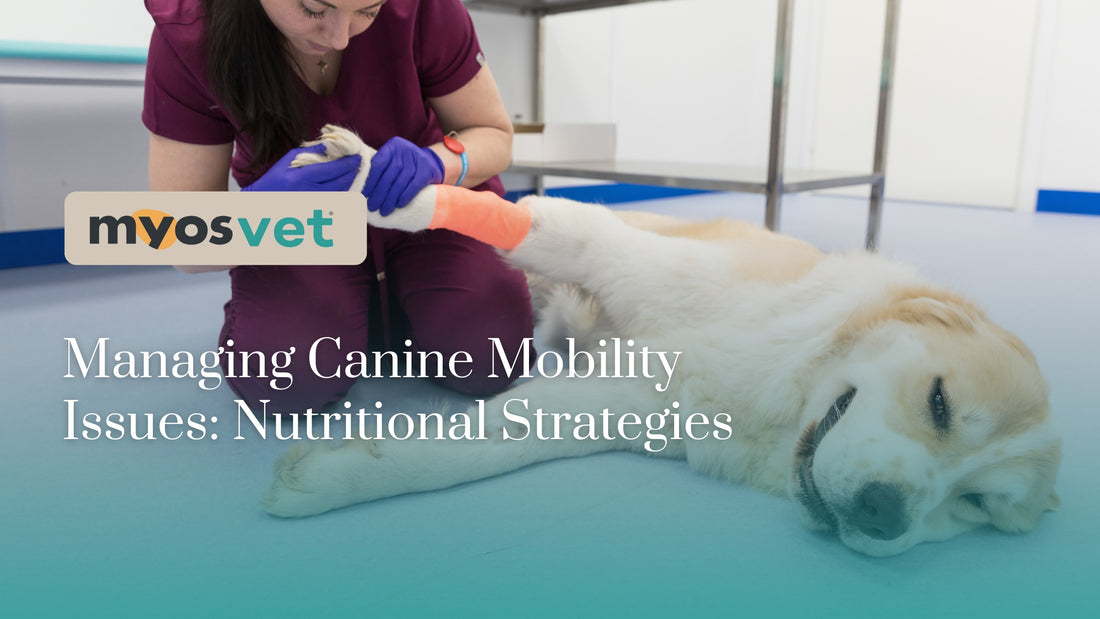
Managing Canine Mobility Issues: Nutritional Strategies
Share
Nutrition profoundly impacts canine mobility, influencing both beneficial and detrimental outcomes. Poor dietary choices can worsen mobility issues, contributing to inflammation, muscle loss, and joint degradation. Conversely, a well-balanced diet can significantly enhance muscle and joint health, helping to manage and alleviate mobility challenges associated with aging, injury, or chronic conditions. Addressing nutritional deficiencies and optimizing dietary components are crucial for effective management.
Support for Joint and Muscle Health
A well-rounded diet is essential for maintaining joint and muscle health. Inadequate protein intake can lead to muscle atrophy, while deficiencies in key nutrients may impair joint integrity. Supplements that support joint health and muscle maintenance are vital for preventing and managing mobility issues. Effective nutritional strategies not only help preserve muscle mass but also support cartilage health and reduce inflammation, all of which are essential for maintaining optimal mobility.
MYOS Vet’s New Eggshell Membrane Product
The MYOS Vet Canine Muscle Formula Plus is a noteworthy advancement in nutritional support for canine mobility. This supplement combines Fortetropin® with eggshell membrane and green-lipped mussels. Fortetropin® promotes muscle maintenance and strength, addressing muscle atrophy often seen in dogs with mobility issues. The eggshell membrane supports joint health by improving cartilage integrity and reducing inflammation, while green-lipped mussels offer additional anti-inflammatory benefits and support joint function. Together, these ingredients provide a comprehensive approach to managing mobility challenges.
Managing Inflammation Through Diet
Inflammation is a key factor affecting mobility, contributing to pain and reduced joint function. Managing inflammation through diet can help alleviate these issues and improve overall mobility. Incorporating anti-inflammatory ingredients into the diet, such as those found in certain supplements, can mitigate the effects of inflammation, enhance joint function, and improve quality of life. Dietary adjustments aimed at reducing inflammation are crucial for supporting long-term mobility and managing chronic conditions.
Conclusion: Optimizing Nutrition for Enhanced Mobility
A targeted nutritional approach is essential for managing canine mobility issues effectively. While physical therapy and medications are important, optimizing a dog’s diet to support muscle health, joint integrity, and inflammation can significantly improve mobility and overall well-being. Veterinarians play a crucial role in guiding pet owners toward effective nutritional strategies, ensuring comprehensive management of mobility challenges and promoting better health outcomes for their pets.
